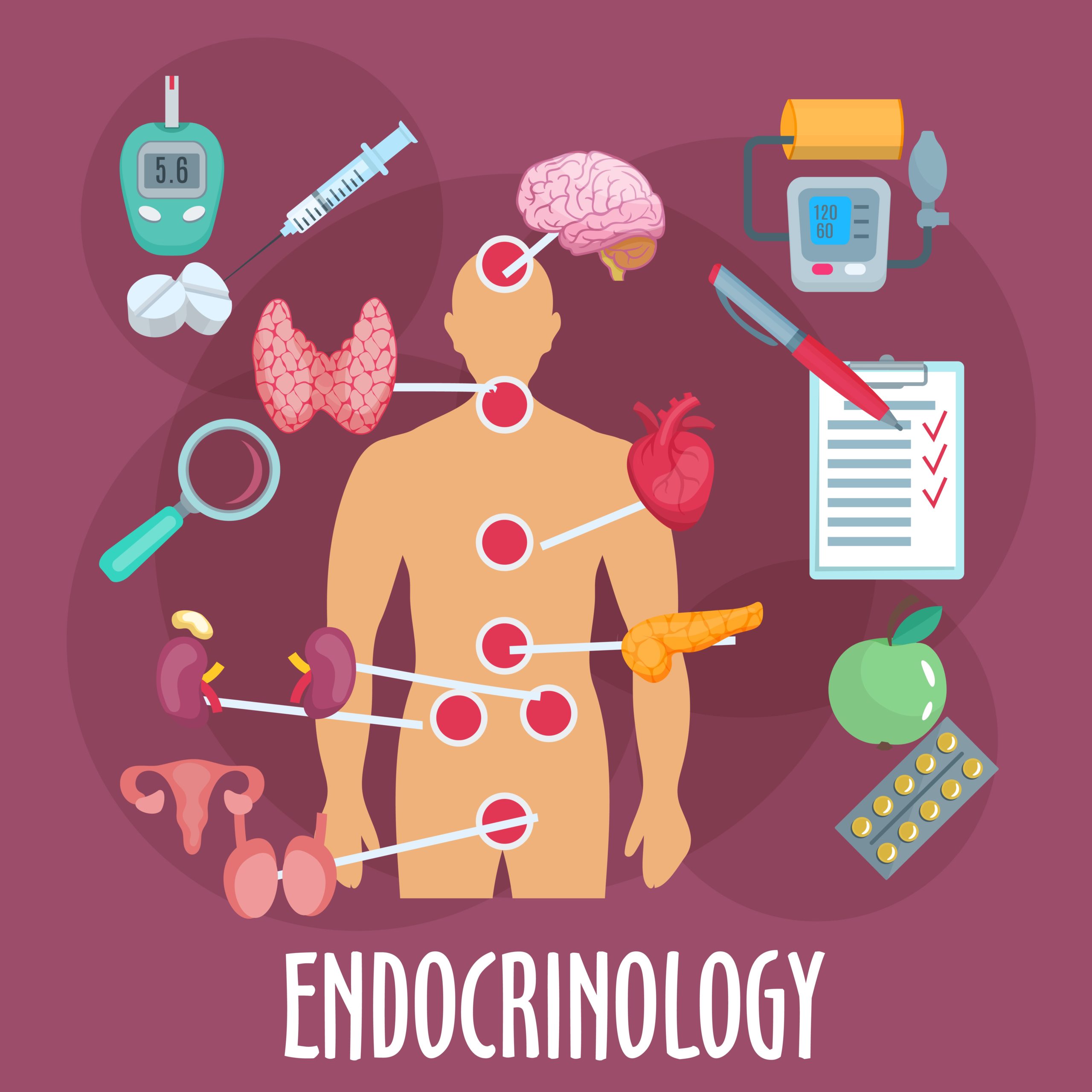Best Endocrinologist Near Me: Locating Top Medical Specialists
Wiki Article
The Science Behind Hormonal Agent Policy: Insights From an Endocrinologist
The Scientific Research Behind Hormonal Agent Regulation: Insights From an Endocrinologist provides a thorough expedition of the intricate processes entailed in hormone policy. Composed by a seasoned endocrinologist, this insightful guide explores the interesting world of hormones and their important duty in keeping physical features. From the principles of hormonal agent manufacturing to the complicated feedback loopholes that govern their launch, this publication provides a thorough exam of the systems at play. Additionally, it explores the numerous aspects that can interrupt hormonal agent equilibrium and supplies beneficial understandings right into just how these inequalities can be identified and treated. Whether you are a doctor looking for a deeper understanding of endocrine function or an individual interested in discovering the scientific research behind hormone policy, this book is an indispensable resource.Hormonal Agents and Their Functions
Hormones play crucial functions in the regulation and control of different physical processes within the body. These chemical messengers are created by endocrine glands and are released right into the bloodstream, where they take a trip to target cells or organs to apply their results. The features of hormones vary and encompass virtually every element of human physiology.Among the main features of hormonal agents is to keep homeostasis, which is the stable inner atmosphere necessary for the body to operate optimally. As an example, insulin, a hormone created by the pancreas, controls blood sugar levels by advertising the uptake and storage space of glucose in cells. One more hormone, cortisol, helps the body reply to stress and anxiety by enhancing blood sugar levels and subduing the immune system.
Hormones also play crucial functions in development and growth. Growth hormone, created by the pituitary gland, boosts the growth of cells and bones, while thyroid hormones regulate metabolic process and affect the growth of the nerve system - Texas endocrinology. Furthermore, reproductive hormonal agents, such as estrogen and testosterone, are accountable for the development and upkeep of secondary sex-related qualities and the regulation of the menstrual cycle
The Endocrine System: An Overview
Playing an essential function in the policy and sychronisation of physiological procedures, the endocrine system is a complex network of glands that produce and release hormones into the bloodstream. These glands, consisting of the hypothalamus, pituitary gland, thyroid gland, adrenal glands, pancreas, ovaries, and testes, secrete hormones that function as chemical messengers, influencing various physical features. The endocrine system works in combination with the nervous system to keep and manage homeostasis, making sure that the body's internal atmosphere continues to be secure.It produces hormonal agents that stimulate or prevent the launch of hormones from the pituitary gland, which in turn regulates the task of other endocrine glands. The thyroid gland, situated in the neck, generates hormonal agents that manage metabolism and power balance.

Guideline of Hormone Manufacturing
The regulation of hormone production entails a complex interplay between various glands and responses systems within the endocrine system. Hormonal agents are chemical messengers that play a vital function in maintaining homeostasis and collaborating numerous physical processes in the body. The production of hormones is firmly controlled to ensure the correct performance of the endocrine system.The hypothalamus, located in the brain, works as a key regulatory authority of hormone manufacturing. It releases hormones that promote or prevent the manufacturing of hormones by the pituitary gland, which is usually referred to as the "master gland" of the endocrine system. The pituitary gland, consequently, creates hormonal agents that act on numerous target glands throughout the body, stimulating them to generate and launch details hormonal agents.
Feedback mechanisms also play an essential duty in hormonal agent guideline. When hormone levels increase above or drop listed below the ideal range, the body activates devices to either decline or increase hormone production, respectively, to recover equilibrium.
Comments Loops in Hormone Law
Feedback loops play a crucial function in the law of hormonal agent production. These loops entail a collection of communications in between the endocrine glands, hormonal agents, and target body organs to keep homeostasis in the body. There are 2 kinds of comments loops: negative responses and favorable comments.Adverse comments is the most typical kind of comments loop in hormonal agent law. It functions by noticing the levels of a hormonal agent in the index blood and adjusting hormonal agent production as necessary. When hormonal agent degrees rise above a specific threshold, the hypothalamus in the brain signifies the pituitary gland to reduce hormone manufacturing. This, in turn, decreases the excitement of the target organ, bring about a decline in hormone secretion. Conversely, when hormonal agent levels go down listed below the threshold, the hypothalamus stimulates the pituitary gland to increase hormone manufacturing, bring back equilibrium.
Positive feedback loops, on the various other hand, intensify hormonal agent production. This takes place when a hormone boosts the launch of even more of the very same hormonal agent, causing a quick boost in its degrees. Nevertheless, favorable comments loopholes are less typical in hormonal agent regulation and are generally included in particular physical procedures, such as childbirth and lactation.
Aspects Affecting Hormonal Agent Equilibrium
Variables affecting hormonal agent equilibrium consist of dietary selections, way of living habits, and ecological direct exposures. These variables can have a substantial influence on the delicate equilibrium of hormonal agents in the body, affecting numerous physiological processes and overall health and wellness.Dietary choices play a critical role in hormonal agent law. Eating a balanced diet that includes a variety of nutrients is crucial for maintaining hormonal agent balance. Particular nutrients, such as omega-3 fats, vitamins, and minerals, are particularly crucial for ideal hormonal agent feature. More hints On the various other hand, a diet high in refined foods, refined sugars, and harmful fats can disrupt hormone levels and more cause inequalities.
Lifestyle practices, such as exercise, rest patterns, and stress and anxiety administration, also influence hormonal agent balance. Regular exercise aids manage hormonal agent levels, advertises total wellness, and decreases the risk of hormonal disorders. Sufficient sleep is vital for hormonal agent manufacturing and guideline, as interfered with sleep patterns can result in imbalances. Furthermore, persistent stress can dysregulate the hypothalamic-pituitary-adrenal (HPA) axis, a principal in hormonal agent law, causing a waterfall of hormonal discrepancies.

Conclusion
In conclusion, understanding the scientific research behind hormonal agent guideline is necessary for keeping overall health and wellness and health. Hormones play crucial duties in numerous bodily functions, and their manufacturing is regulated by complex comments loopholes.The Scientific Research Behind Hormonal Agent Regulation: Insights From an Endocrinologist provides a comprehensive expedition of the detailed procedures entailed in hormonal agent law. It generates hormonal agents that boost or prevent the release of hormonal agents from the pituitary gland, which in turn manages the activity of other endocrine glands. It releases hormones that inhibit the production or stimulate of hormonal agents by the pituitary gland, which is frequently referred to as the "master gland" of the endocrine system. The pituitary gland, in turn, creates hormonal agents that act on different target glands throughout the body, promoting them to create and release specific hormones.
When hormone levels climb over a specific threshold, the hypothalamus in the brain signals the pituitary gland to decrease hormonal agent production. (Texas endocrinology)
Report this wiki page